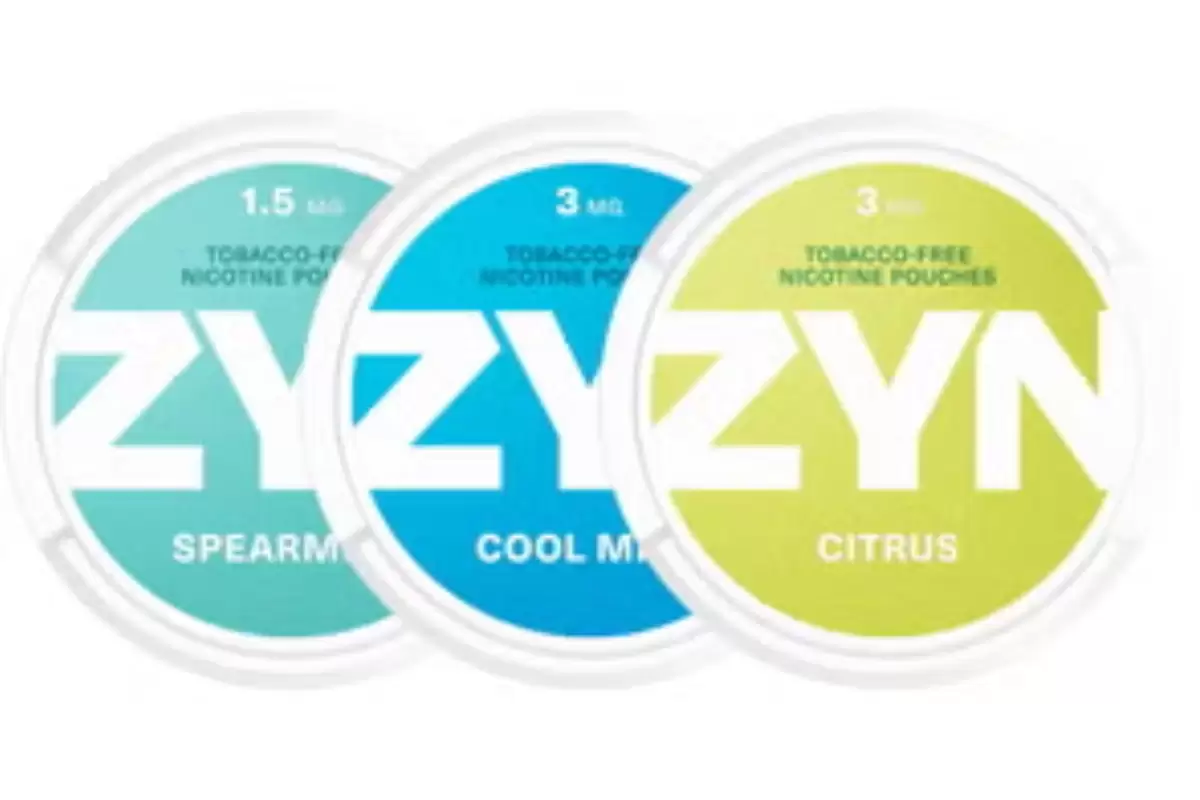The prevalence of weed smoking has seen various shifts over the decades, influenced by cultural trends, legal changes, and growing awareness of health impacts. While marijuana is celebrated for its therapeutic effects and recreational benefits in many circles, there are significant reasons why individuals might consider quitting.
One such reason is the emergence of nicotine pouches as a safer alternative for those looking to quit smoking weed. These smokeless, tobacco-free products offer a way to manage nicotine cravings without the harmful effects of smoking. Nicotine pouches provide a controlled dose of nicotine in a discreet and easy-to-use format, making them an increasingly popular choice among those looking to move away from combustible products.
Dr. Lisa Townsend, a renowned addiction specialist, emphasizes the utility of such alternatives: “For those struggling with quitting traditional smoking habits, whether tobacco or marijuana, nicotine pouches serve as an effective transitional tool. They significantly reduce exposure to harmful smoke-related toxins while addressing the physiological aspects of nicotine dependency.”
This introduction sets the stage for discussing the multifaceted benefits of quitting smoking weed, not only from a health perspective but also considering social, legal, and economic implications, with nicotine pouches providing a viable cessation aid.

Health Benefits of Quitting Weed
Quitting smoking weed offers numerous health benefits that can significantly improve one’s quality of life. The most immediate and notable changes often occur in lung health and respiratory function. Dr. Harold Bennett, a pulmonologist, notes, “Ceasing weed smoking alleviates respiratory symptoms and decreases the risk of respiratory infections. Patients report fewer episodes of bronchitis and a general improvement in breathing capacity within just a few months of quitting.”
Beyond respiratory health, quitting weed has profound effects on mental clarity and emotional well-being. Many users experience enhanced mental clarity and reduced anxiety levels after stopping their cannabis use. Research suggests that long-term abstinence from weed can lead to improvements in attention, memory, and cognitive function. Regular marijuana use has been associated with various cognitive impairments. Patients who quit often demonstrate significant recoveries in areas of executive function and memory processing.
Additionally, the long-term benefits for brain health are substantial. Studies indicate that prolonged use of marijuana can affect brain structure and function, particularly in younger users whose brains are still developing. The younger the individual starts consuming cannabis, the more profound the impact on brain development. Quitting, especially at a younger age, can help mitigate these effects and support healthier cognitive development.
These health benefits underscore the importance of quitting smoking weed as a proactive measure to maintain and enhance overall health, especially in the respiratory and cognitive domains.
Social and Legal Implications of Smoking Weed
The social and legal landscape surrounding marijuana use is complex and continues to evolve, impacting users in various personal and professional contexts. The changing legal status of marijuana, which varies widely between regions, can have profound implications on an individual’s life. Even in areas where marijuana has been legalized, there can be significant consequences for use, such as restrictions on employment, travel, and in some cases, eligibility for scholarships and public assistance.
On the social side, despite growing acceptance, there remains a stigma associated with marijuana use that can affect social interactions and employment opportunities. This stigma can lead to social isolation or difficulties in professional relationships, particularly in industries that require regular drug testing or have strict drug-free policies. The stigma associated with marijuana use, despite legalization efforts, often persists in both overt and subtle discrimination in social and work settings.
Moreover, individuals who use marijuana may find themselves at odds with federal laws, even if their state laws permit medicinal or recreational use. This legal discrepancy can lead to complex situations, particularly when it involves federal jurisdiction or interstate activities. Federal law still classifies marijuana as a controlled substance, which can lead to complications in areas like federal employment or when navigating legal issues across state lines.
Navigating this evolving legal and social environment is a significant challenge for many, providing a strong incentive to consider quitting, especially for those in sensitive or highly regulated professions.
Economic Advantages of Quitting
Quitting smoking weed can lead to substantial economic benefits, both directly through cost savings and indirectly through enhanced professional opportunities. An analysis of habitual weed smoking versus the savings from quitting reveals a significant financial impact over time. The cost of purchasing marijuana regularly adds up, with Dr. Timothy Martin, an economist specializing in consumer spending, noting, “Regular cannabis users can spend thousands annually, a substantial amount that could otherwise be saved or invested for future financial stability.”
Beyond personal savings, the potential financial benefits from improved productivity and job opportunities are noteworthy. Employers often prefer candidates who do not use substances like marijuana, due to the perceived increase in productivity and decrease in workplace incidents. Dr. Martin elaborates, “Quitting marijuana can enhance an individual’s job prospects, especially in industries that conduct regular drug testing or where safety and precision are paramount.”
Moreover, individuals who quit smoking weed often report higher levels of energy and improved mental acuity, which can translate into better performance at work. This not only positions them for potential promotions and salary increases but also enhances their professional reputation. Dr. Sarah Gilbert, a psychologist specializing in occupational health, comments, “Improved cognitive function and reliability, often reported by those who quit smoking weed, directly contribute to enhanced job performance and career progression opportunities.”
In essence, the economic advantages of quitting smoking weed extend beyond immediate cost savings to long-term financial and career benefits, making it a financially prudent decision for many individuals.

Using Nicotine Pouches as a Smoking Cessation Aid
Nicotine pouches are gaining traction as a popular aid for those seeking to quit smoking weed, especially among individuals looking to manage their nicotine cravings without the harmful effects associated with smoking. These pouches contain nicotine but do not involve tobacco leaf, combustion, or smoke, making them a less harmful alternative for nicotine intake.
How Nicotine Pouches Work Nicotine pouches work by placing a small pouch between the gum and lip, where the nicotine is absorbed through the mucous membranes in the mouth. This method provides a controlled release of nicotine, helping to reduce withdrawal symptoms and curb cravings in a discreet manner. Dr. Linda Carter, a specialist in addiction treatment, explains, “Nicotine pouches can be an effective tool for those transitioning away from more harmful smoking habits. They offer a smoke-free, spit-free option that is socially acceptable and versatile for use in various settings.”
Benefits of Using Nicotine Pouches The benefits of using nicotine pouches include their convenience and effectiveness in managing withdrawal symptoms. These pouches do not produce second-hand smoke and eliminate the odor associated with smoking, providing a more socially acceptable method of nicotine use. Additionally, they are available in various strengths and flavors, allowing users to tailor their experience according to their preferences and nicotine dependency levels.
Comparing Effectiveness and Safety Compared to other cessation methods, nicotine pouches offer a unique balance of convenience and efficacy. They are considered safer than smoking because they do not involve the inhalation of combusted materials, which are responsible for many of the health risks associated with smoking cannabis and tobacco. Dr. Carter notes, “While not completely risk-free, nicotine pouches present a significantly lower risk profile compared to traditional smoking and can be a part of a comprehensive approach to quitting.”
Using nicotine pouches as a cessation aid provides an effective, discreet, and adaptable solution for those looking to quit smoking weed, contributing to a smoother transition and better management of the cessation process.
Lifestyle Changes and Support Systems
Making the decision to quit smoking weed is a significant step towards healthier living, but sustained success often requires comprehensive lifestyle changes and robust support systems. Implementing these changes and utilizing available support can greatly enhance the likelihood of long-term cessation.
Tips for Making Lifestyle Changes To effectively quit smoking weed, individuals should consider altering their environment and daily routines to minimize triggers and temptations. This might include avoiding social situations where marijuana is present and replacing old habits with new, healthier activities such as exercise, meditation, or hobbies. Dr. Angela Foster, a clinical psychologist, suggests, “Engaging in regular physical activity not only improves overall health but also reduces stress and anxiety, which can be triggers for relapse.”
Additionally, establishing a routine that supports healthy habits is crucial. Setting regular sleep schedules, eating balanced meals, and staying hydrated help maintain physical and mental well-being, which is essential during the quitting process.
Importance of Support Systems Support from friends, family, and professionals plays a critical role in overcoming addiction. Many find that joining support groups, such as Marijuana Anonymous or other community support organizations, provides the encouragement and accountability needed to stay committed to quitting. Counseling and therapy can also be beneficial, offering strategies to cope with the psychological aspects of addiction and withdrawal.
Dr. Foster adds, “Professional support can help individuals understand the root causes of their substance use, develop coping mechanisms, and build a supportive network that fosters positive change.”
By combining lifestyle adjustments with strong support networks, individuals are better equipped to navigate the challenges of quitting smoking weed, ultimately leading to more successful and permanent outcomes.
Conclusion
Quitting smoking weed can lead to numerous benefits, improving physical health, mental clarity, and offering substantial social and economic advantages. The use of nicotine pouches has emerged as a practical cessation aid, helping individuals manage withdrawal symptoms in a safer and more controlled manner. These pouches provide an effective alternative for those seeking to quit, especially in environments where smoking is inappropriate or banned.
Embracing lifestyle changes and leveraging support systems are also critical to the success of quitting. Adjustments to daily routines and environments, along with professional guidance and community support, can significantly increase the chances of maintaining long-term cessation. The journey to quit smoking weed is a challenging one, but with the right tools and support, it is certainly achievable.
In summary, the decision to stop smoking weed is not only a step towards healthier living but also a move towards a more stable and productive life. Whether for health, legal, social, or economic reasons, quitting can open up new opportunities and improve quality of life, making it a worthwhile endeavor for anyone considering this change.











